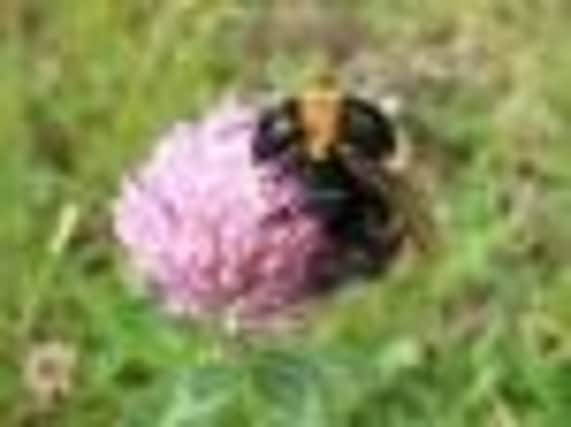Long-lost bee to make come-back


The return of a species that was last recorded at Dungeness in 1988, moved a step closer as a team of scientists set off to Scandanavia on a mission to collect around 50 short-haired bumblebee queens.
Short-haired bumblebees became extinct in the UK after suffering declines because of the loss of wildflower rich habitat. However, they have fared much better in Sweden and conservationists are now ready to begin the delicate work of transferring a small number of the queen bees back here.
Advertisement
Hide AdAdvertisement
Hide AdHealthy queen bees will be collected from the province of Skane, on the southern tip of Sweden, using bee nets before being transferred into glass vials and placed in refrigeration to induce a temporary hibernation.
The bees will return with the scientists to the UK by boat and be placed in quarantine at Royal Holloway University of London to ensure they are free from diseases or parasites that could affect native wildlife. Assuming all is well they are expected to be released in May.
POroject manager Dr Nikki Gammans said: “It’s a delicate operation, which we’ve been meticulously planning with our colleagues in Sweden for over a year. The queen bees will be emerging after the winter in hibernation and will be well fed before beginning the journey home. We’ve been collecting pollen from the sites in Kent to feed them whilst they are in quarantine and they will be released at the end of May.” Meanwhile preparations have been made at the RSPB’s Dungeness reserve and farmland across Romney Marsh to create the ideal conditions for the bees to flourish.
Natural England and the RSPB have been working with farmers throughout Dungeness in the last three years to prepare flowering field margins in an attempt to give the Swedish bees the best possible start and encourage other wildlife across the peninsula. Over 650 hectares of new suitable habitat has been created.
Advertisement
Hide AdAdvertisement
Hide AdNatalie Holt, RSPB Dungeness warden said: “We’ve lost 97 percent of our wild flower meadows in the past 60 years and this has had a devastating impact on our precious native bumblebees. We’ve done a lot of work to prepare for this day by establishing good wild flower habitat, rich in pollen and nectar which will provide a healthy, vibrant habitat for a whole range of insects, wild plants, birds and other animals as well as the short-haired bumblebee.
We’ve already seen a number of rare bee species spreading locally including the shrill carder bee which has returned to RSPB Dungeness nature reserve after a 25 year absence. This shows how successful conservation work really makes a difference in bringing life back to back to our countryside.”
The reserve will be celebrating all the different species of bumblebees with a special programme of events and activities this year.
To keep updated on the project and other reserve news visit: www.rspb.org.uk/dungeness